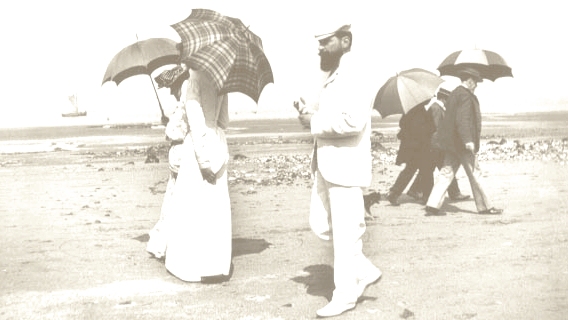I can barely glimpse it now but for a moment there I could see a way it works. This level of opulence, the gold the jewels the entire focused beauty of human craft, first to the church and through the church to God. Because it lifts it above the human. There is no man at the center of it. There is no greed, even though it's an attainment, even though the people's wealth is taken and used, it doesn't go to human agency, and it becomes obvious, it's clear when the man takes it, the usurpation, the deifying of the self, it's more obvious. Because we see the dangers of it, the opulence of the priesthood, the absence of God, but what if it was an ennobling not of man now, or some imaginary God, but the possible, that thing children point toward with their lives, the way we all have in our time, and isn't that the mystery anyway? Where does it go, out past the foreseeable? What do children become eventually? Isn't this rising toward something that might as well be called God? And if it isn't then what's the point?
We judge as we've been taught to judge. But the teachers weren't sane, and their hearts weren't calm. There was hysteria and desperation, and narrow-minded ambition. And what they didn't teach us was how profane the human focus was. How ugly and frightening human opulence is when it goes nowhere, when it exists only to gratify temporary man.
Thus the big rush to achieve physical immortality, to deserve that opulence, to justify it; but we had that already, that's what I saw there, the constant birth of the human thing still becoming, and that dedication to the inexpressible, to something beyond speech, beyond teaching.
We had immortality, through death and birth and the cycles of life. On their way to an artificial version of it these current Lords will destroy everything, just to have it for themselves.
Do you see? It isn't the church that has the gold, it's something ahead and behind. When it's clean, when it's right. We're taught to judge that by its failings, but those same teachers taught us to ignore the failings of what replaced the church, what now takes the workingman's wealth, what lavishes the gold and jewels on itself. The difference is time. One way goes up and out, and on. The other is lost in a desperate drive toward an artificial version of what we already had, that goes nowhere.
This thought started with an image of this bleak relic of a much simpler church. I saw the men and women almost mad with the long Russian winter, and the cold and the food running out, and the children sick and the old dying. It's an alien thing to people who stay connected through wires all day and night, who can jet away from trouble as long as they have the money and the political freedom. But for people who had only small dark rooms, and the bitter dangerous cold outdoors, the church and its reason, its sameness, its message of steadiness and love, the shelter, the surrender to something outside the self, that was a refuge, not a hiding place.
We judge as we've been taught to judge. But the teachers weren't sane, and their hearts weren't calm. There was hysteria and desperation, and narrow-minded ambition. And what they didn't teach us was how profane the human focus was. How ugly and frightening human opulence is when it goes nowhere, when it exists only to gratify temporary man.
Thus the big rush to achieve physical immortality, to deserve that opulence, to justify it; but we had that already, that's what I saw there, the constant birth of the human thing still becoming, and that dedication to the inexpressible, to something beyond speech, beyond teaching.
We had immortality, through death and birth and the cycles of life. On their way to an artificial version of it these current Lords will destroy everything, just to have it for themselves.
Do you see? It isn't the church that has the gold, it's something ahead and behind. When it's clean, when it's right. We're taught to judge that by its failings, but those same teachers taught us to ignore the failings of what replaced the church, what now takes the workingman's wealth, what lavishes the gold and jewels on itself. The difference is time. One way goes up and out, and on. The other is lost in a desperate drive toward an artificial version of what we already had, that goes nowhere.
This thought started with an image of this bleak relic of a much simpler church. I saw the men and women almost mad with the long Russian winter, and the cold and the food running out, and the children sick and the old dying. It's an alien thing to people who stay connected through wires all day and night, who can jet away from trouble as long as they have the money and the political freedom. But for people who had only small dark rooms, and the bitter dangerous cold outdoors, the church and its reason, its sameness, its message of steadiness and love, the shelter, the surrender to something outside the self, that was a refuge, not a hiding place.
-
Color Images
Prokudin-Gorskii Collection
(about 1,900 glass plate negatives by Sergei Mikhailovich Prokudin-Gorskii using three-part color separation technique, with about 100 modern digital color renderings and approximately 2,400 prints mounted in fourteen albums.
1909-1915. Photographic survey of the Russian Empire, showing people, religious architecture, historic sites, industry and agriculture, public works construction, water and railway transportation routes, villages and cities.)
Prints&Photographs
American Memory
Library of Congress
[replace the terminal 'r.jpg' in the address with 'v.jpg' for a much larger image.]



